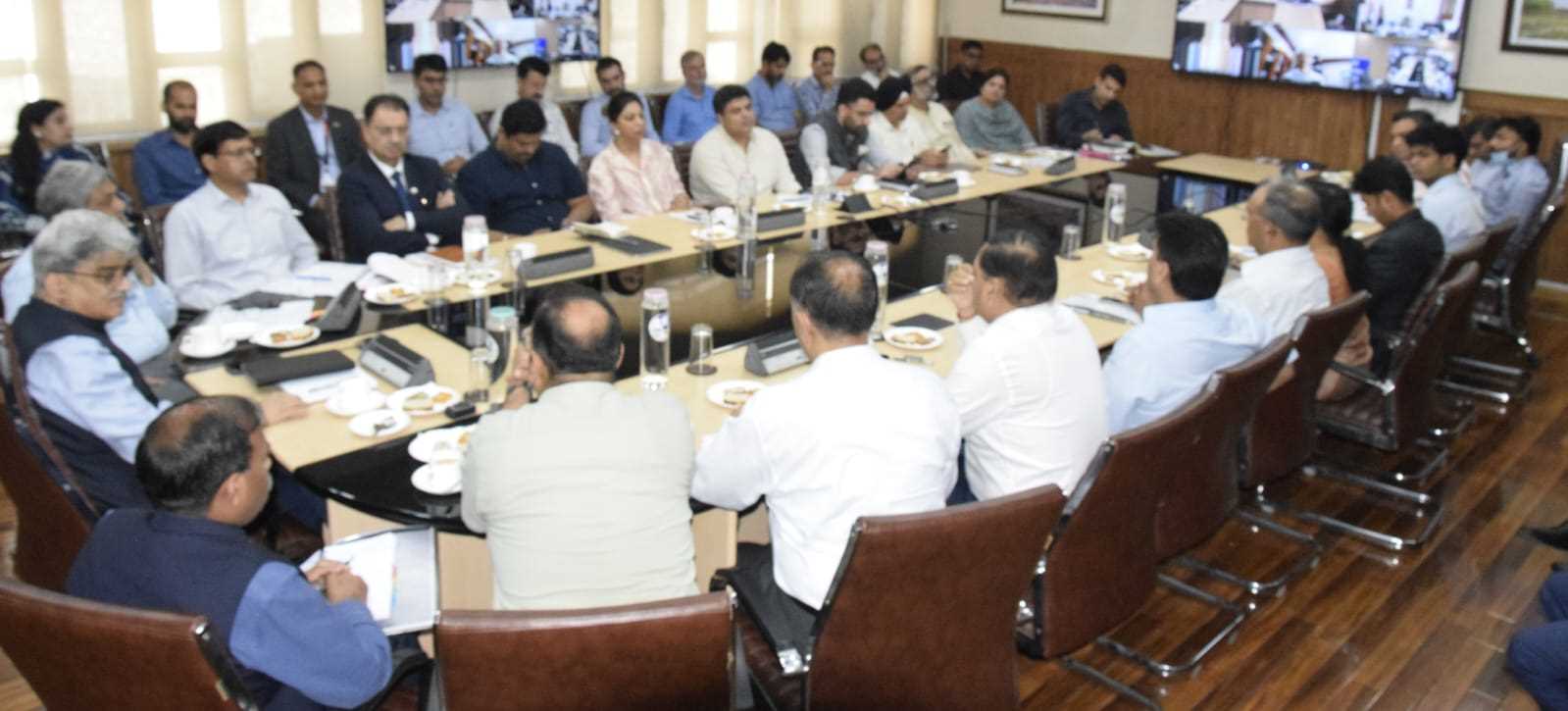
CS Dullo orders immediate revival of Govt websites
In a significant move to strengthen digital infrastructure, Chief Secretary Atal Dulloo chaired a high-level meeting to review and enhance the cyber security framework of government assets and websites in the Union Territory. The meeting highlighted the urgent need for cyber resilience in today’s digital era.
Attended by administrative heads, the Inspector General (Crime), Commissioners of JMC and SMC, SIO NIC, and other senior officials, the session focused on reviving government websites and web applications that were taken offline for non-compliance with security and audit norms. The Chief Secretary emphasized that these essential digital platforms must be restored without delay and cannot remain shut indefinitely.
He directed the IT Department to submit compliance reports from all departments bi-weekly—on Mondays and Thursdays—and instructed the NIC and IT Department to take immediate action to bring the websites back online.
Stressing the importance of data security, Dulloo banned the use of private email addresses for official communication, insisting all correspondence occur via authorized government email accounts. He also ordered the migration of mini data centers—currently used by entities like JPDCL, KPDCL, and SICOP—to secure, centralized facilities.
The Chief Secretary further called for continuous capacity building across departments to instill cyber hygiene practices. He urged the creation of departmental ‘master trainers’ to spread best practices and ensure long-term digital safety.
Providing an update, Secretary IT Piyush Singla informed the meeting that a recent two-day cyber security workshop had trained around 250 officers. He also noted that CISOs or ISOs have been appointed in each department to safeguard IT infrastructure.
Currently, about 110 websites are undergoing security audits, with 45 nearing completion and set to go live soon. Singla reaffirmed that all digital platforms must comply with CERT-In and OWASP standards before reactivation.
To boost endpoint security, 4011 devices have been equipped with Endpoint Detection and Response (EDR) solutions, and 1617 devices with Unified Endpoint Management (UEM). Additional safeguards such as VPN security, geo-fencing, port security, and stringent firewall and router policies have been implemented across the board.
The meeting underscored the UT’s commitment to a secure digital future, emphasizing both immediate actions and strategic, long-term cyber security measures.
CS Dullo orders immediate revival of Govt websites
In a significant move to strengthen digital infrastructure, Chief Secretary Atal Dulloo chaired a high-level meeting to review and enhance the cyber security framework of government assets and websites in the Union Territory. The meeting highlighted the urgent need for cyber resilience in today’s digital era.
Attended by administrative heads, the Inspector General (Crime), Commissioners of JMC and SMC, SIO NIC, and other senior officials, the session focused on reviving government websites and web applications that were taken offline for non-compliance with security and audit norms. The Chief Secretary emphasized that these essential digital platforms must be restored without delay and cannot remain shut indefinitely.
He directed the IT Department to submit compliance reports from all departments bi-weekly—on Mondays and Thursdays—and instructed the NIC and IT Department to take immediate action to bring the websites back online.
Stressing the importance of data security, Dulloo banned the use of private email addresses for official communication, insisting all correspondence occur via authorized government email accounts. He also ordered the migration of mini data centers—currently used by entities like JPDCL, KPDCL, and SICOP—to secure, centralized facilities.
The Chief Secretary further called for continuous capacity building across departments to instill cyber hygiene practices. He urged the creation of departmental ‘master trainers’ to spread best practices and ensure long-term digital safety.
Providing an update, Secretary IT Piyush Singla informed the meeting that a recent two-day cyber security workshop had trained around 250 officers. He also noted that CISOs or ISOs have been appointed in each department to safeguard IT infrastructure.
Currently, about 110 websites are undergoing security audits, with 45 nearing completion and set to go live soon. Singla reaffirmed that all digital platforms must comply with CERT-In and OWASP standards before reactivation.
To boost endpoint security, 4011 devices have been equipped with Endpoint Detection and Response (EDR) solutions, and 1617 devices with Unified Endpoint Management (UEM). Additional safeguards such as VPN security, geo-fencing, port security, and stringent firewall and router policies have been implemented across the board.
The meeting underscored the UT’s commitment to a secure digital future, emphasizing both immediate actions and strategic, long-term cyber security measures.
© Copyright 2023 brighterkashmir.com All Rights Reserved. Quantum Technologies